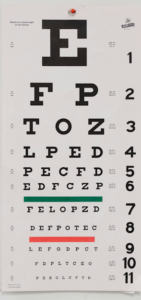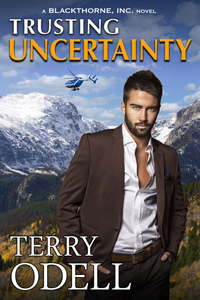
“Having knowledge but lacking the power to express it clearly is no better than never having any ideas at all.” –Pericles
* * *
I recently had cataract surgery on my right eye. The left eye gets its turn later this week. Prior to the surgery, I was accustomed to viewing objects with a slight blur to them, and that’s not bad when you’re looking at the world in general. As a matter of fact, maybe it’s preferable. But it wasn’t a great method for reading, and the font size on my iPad was getting close to max, so I finally agreed to undergo the procedure. Within a couple of hours after the operation, the world suddenly came into perfect focus, and I could see details I had been missing for years.
All this made me think about writing. No surprise there, but it’s not about seeing the words on the page, but rather seeing the story you want to tell. That kind of sight is what every author aspires to, and one way to obtain it is to understand the theme of your book.
* * *
In his book Story Engineering, Larry Brooks writes
“Not to be confused with concept, theme is what your story is illuminating about real life.”
I like that “illuminating about real life.” Theme is the fundamental message you want your readers to get. It’s the lens through which they will view your story and understand the deeper meaning within it. And when that happens, the reader will walk away with a memorable experience.
But how do you choose a theme?
* * *
“To produce a mighty book, you must choose a mighty theme.” —Herman Melville
* * *

Writers.com lists some of the common themes in literature. These include
Coming of Age
Faith vs Doubt
Family
Fate vs Free Will
Good vs Evil
Hubris
Justice
Man vs Nature
Man vs Self
Man vs Society
Power and Corruption
Pursuit of Love
Revenge
Survival
War
A few of the novels mentioned on the writers.com site were Jane Eyre (Coming of Age) by Charlotte Bronte, The Iliad (Hubris) by Homer, To Kill a Mockingbird (Justice) by Harper Lee, and 1984: A Novel (Man vs Society) by George Orwell.
They didn’t mention All Quiet on the Western Front by Erich Maria Remarque, but that is the book I would choose for its powerful theme of War.
* * *
Some authors decide on a theme before starting a new work. Others may work on their novel for a while before seeing the theme take shape. In any case, having an underlying theme for the story leaves the reader with something more than a good reading experience. It’s a message to carry with them beyond The End.

As a mystery writer, the theme for my books is always that truth will be found and justice will be served. But my last novel, Lacey’s Star, took it one step further. It was based on the theme that finding the truth may depend on who you decide to trust.
My stories also reference the importance of faith and family and emphasize the need for endurance. “Never give up” is an underlying message in every book.
* * *
So TKZers: Do you identify a theme for your books before you start writing? Or do you “discover” the theme as you go along? What themes have you used in your books? What memorable themes have you taken away from books you read?
* * *

“The truth is bitter, but with all its bitterness, it is better than illusion.” –Ahad Ha’Am
2024 Eric Hoffer Grand Prize Award Finalist
2024 Eric Hoffer Mystery/Crime Award Honorable Mention
Available at Amazon, Barnes & Noble, Kobo, Google Play, or Apple Books.


